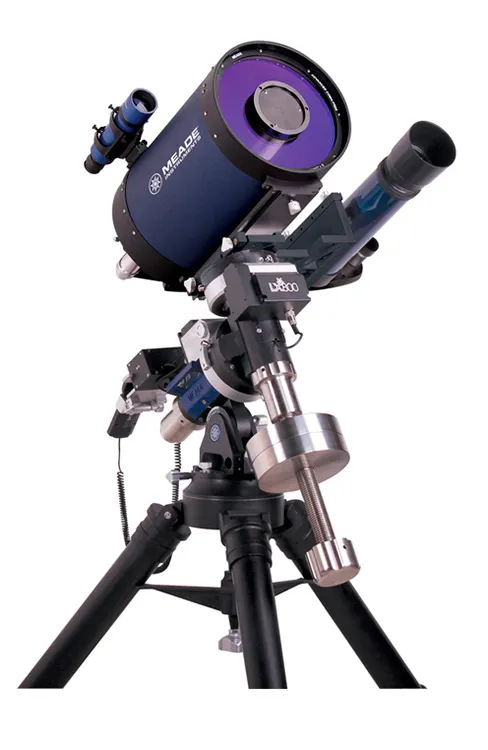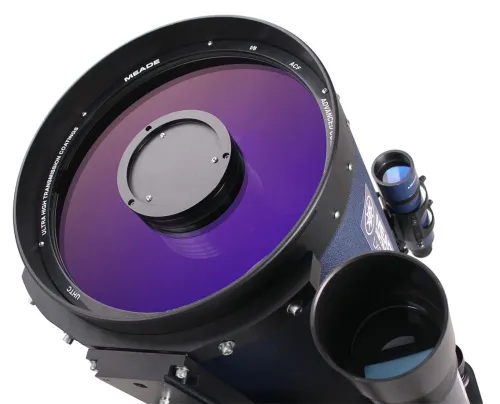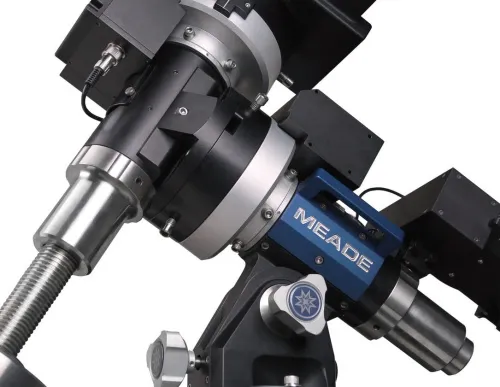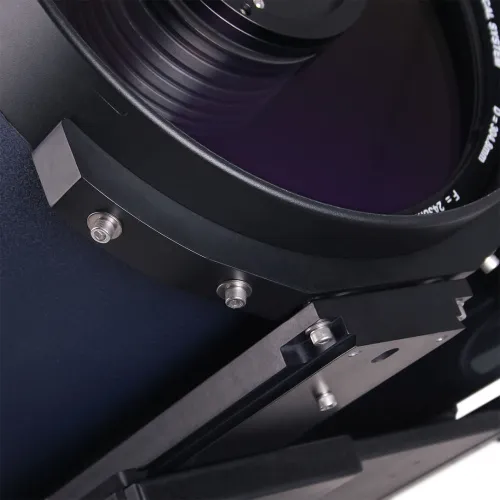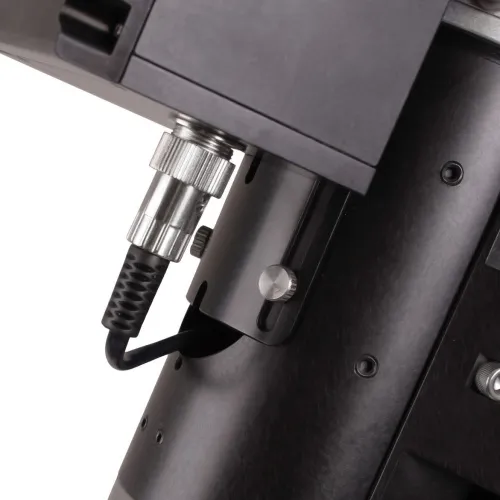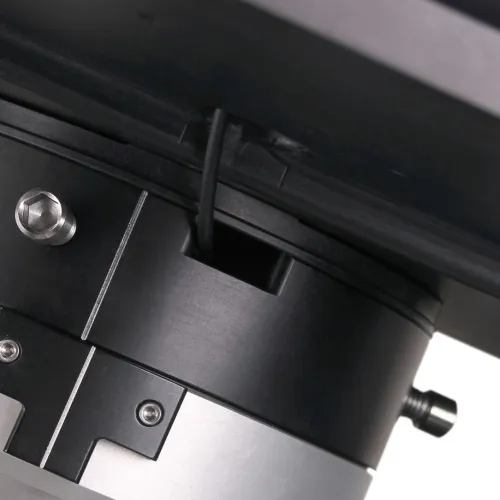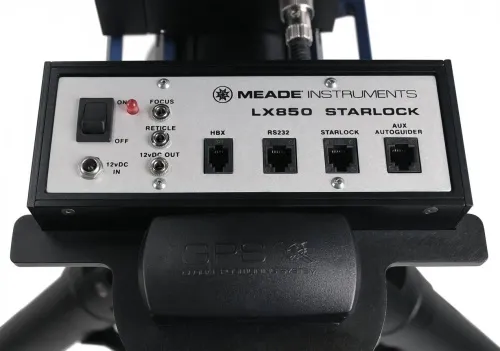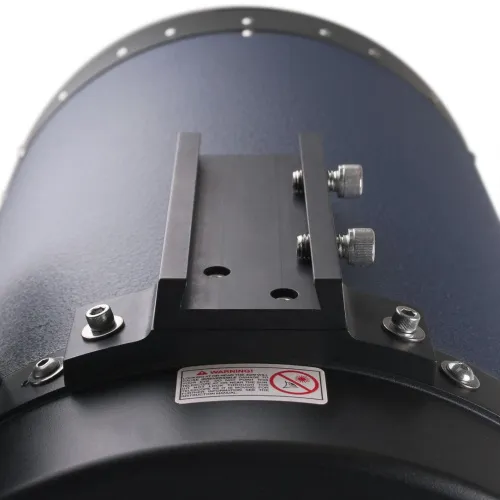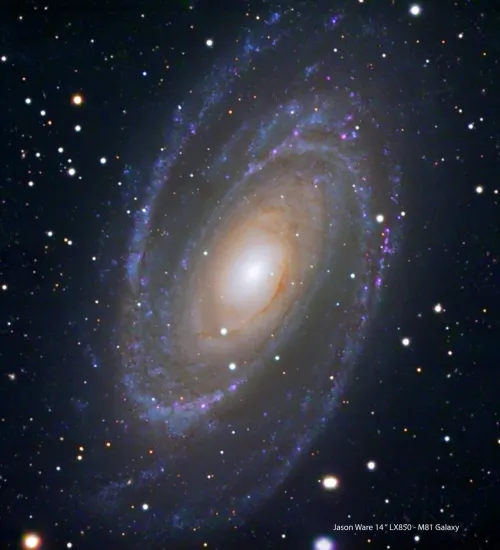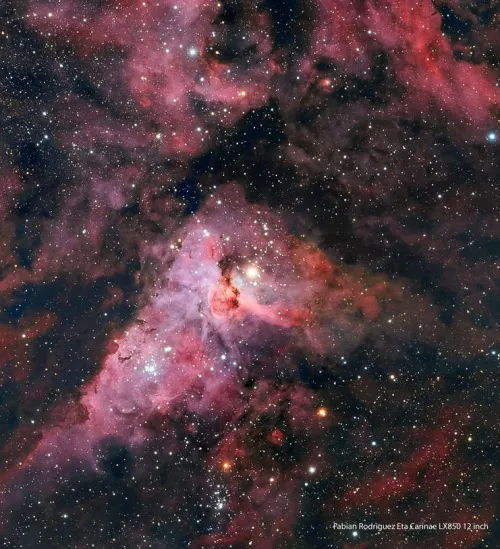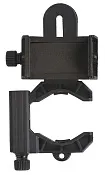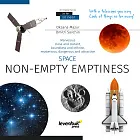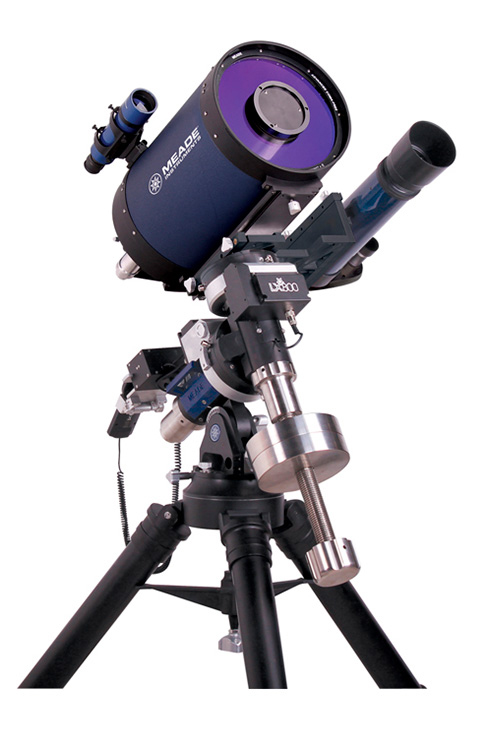Meade LX850 10" F/8 ACF Telescope
Catadioptric telescope. Objective lens diameter: 254mm. Focal length: 2032mm
| Product ID | 71702 |
| Brand | Meade Instruments Corp. |
| Warranty | 2 years |
| EAN | 0643824209077 |
| Package size (LxWxH) | 100x100x75 cm |
| Shipping Weight | 122.49 kg |
The LX850 10" F/8 ACF Telescope consists of an Optical Tube Assembly (OTA), Starlock dual imager full-time autoguider, AutoStar II GoTo System, a German Equatorial Mount, and a heavy-duty tripod.
The LX850 Telescope’s OTA features 10" f/8 ACF optics with high-contrast baffling that allows for a wider, flatter field and ensures that pinpoint star images are visible even at the very edge of the field of view. Meade’s UHTC on the OTA optics reduce light loss through reflection or transmission, and allow for high image brightness and contrast. Thanks to the ACF optics, this telescope ensures reduction in astigmatism and elimination of diffraction spikes. The LX850 telescope comes with the HD-60 25mm eyepiece that has a large, 60° apparent field of view and a long eye relief for effortless, comfortable observation.
The OTA is held in its place by the precision-machined, heavy-duty German Equatorial Mount. This mount is built using high-quality stainless steel and aircraft grade 6061-T6 aluminum alloy for durability. The mount comes with Meade’s Starlock full-time autoguider that is capable of capturing even a faint 11th magnitude star.
The telescope comes with the Autostar II GoTo system that can command it to automatically slew to any of the 144,000 objects in its library. Other features include a GPS receiver, precision roller bearings on both axes, precision pointing and assisted drift alignment, 5.8" 225-tooth polished bronze worm/gear drives with low periodic error, fine manual adjustment controls on both axes, illuminated reticle output port, and internal cable routing. Two 11.8kg counterweights that come with the mount help balance the OTA’s weight. The mount is capable of handling a payload of up to 40kg. The whole system is mounted on a steady tripod that features 3" thick legs. The height of the tripod is fully adjustable from 29 to 45".
Features:
- 10" f/8 advanced coma free (ACF) optics – 2032mm focal length
- Meade Ultra-High Transmission Coatings (UHTC)
- Crayford focuser
- 40kg instrument capacity
- StarLock automatic guider
- AutoStar II GoTo system
- Heavy-duty tripod
- Zero image shift electronic micro-focuser
| Product ID | 71702 |
| Brand | Meade Instruments Corp. |
| Warranty | 2 years |
| EAN | 0643824209077 |
| Package size (LxWxH) | 100x100x75 cm |
| Shipping Weight | 122.49 kg |
| Optical design | catadioptric |
| Optical scheme | coma-free Schmidt–Cassegrain |
| Optics material | borosililate glass with a low coefficient of thermal expansion |
| Objective lens diameter (aperture), mm | 254 |
| Focal length, mm | 2032 |
| Lowest practical power, x | 42 |
| Highest practical power, x | 650 |
| Aperture ratio | f/8 |
| Resolution threshold, arcseconds | 0.456 |
| Limiting stellar magnitude | 14.5 |
| Focusing | by moving the main mirror |
| Eyepiece barrel diameter, in | 1.25 |
| Finderscope | optical, 8x50 with reticle |
| Focuser | Crayford, 2-speed (1:7), backlash-free |
| Tripod | aluminum |
| Tripod height (adjustable), mm | adjustable, 740–1140 |
| Tripod weight, kg | 16.3 |
| Telescope control | autoguide |
| Mount | equatorial |
| Setting and positioning system | LightSwitch |
| GPS receiver | integrated |
| Latitude adjustment range, ° | 10 — 70 |
| Bearings | roller, 80mm |
| Mount dimensions, mm | 305x203x355 |
| Mount weight, kg | 27.2 |
| Maximum payload, kg | 40.8 |
| Counterweights | 2 |
| Counterweight rod length, mm | 305 |
| Counterweight rod diameter, mm | 45 |
| Counterweight weight, kg | 11.8 |
| Slew rate | up to 3 degrees per second |
| Tracking rate | customizable from 0.01 to 1x sidereal speed, 1x, 2x, 8х, 16x (1/4 °, 1/2 °, 1 °, 3 °) |
| Positioning accuracy | 1 arcminute (+/-) |
| Speed selection | automatic (guiding), manual (if position is corrected) |
| Tracking mode | equatorial |
| Periodic error correction (PEC) | ✓ |
| Automatic horizontal alignment | ✓ |
| Automatic magnetic pole search | ✓ |
| Reference stars | ✓ |
| Ports | 12V accessory power slot, AUX (universal port for connecting Meade accessories), AutoStar remote control connector, RS-232, StarLock system |
| Autoguider | ✓ |
| Hand controller | Autostar II |
| Programmable options | autoguiding (GoTo), automatic search in the database, night sky excursion mode with audio lecture, time estimate of astronomical events |
| Objects database | 144,000 |
| Update via Internet | for catalogues of artificial Earth satellites, asteroids, comets |
| Ability to connect additional equipment | yes |
| Power supply | 12V car cigarette lighter, 220V network adapter, 12V |
| Optical tube mounting mode | dovetail plate |
| Dovetail mount | ✓ |
| User level | professionals |
| Observed object | planets of the Solar System and deep-sky objects |
Convenient diagrams that describe how to install additional accessories on refractors and catadioptric telescopes
Find out how to assemble a telescope on an example of the Levenhuk Skyline 90x900 EQ telescope
This short guide will help you avoid typical mistakes and learn more about telescope and mounting types
The basics of astronomical observations for beginners
In this article we have gathered answers to some of the most frequently asked questions about telescopes
How telescopes work?
You can actually perform observations from your balcony!
All about telescope sizes, types, magnification, and mounts
Learn how to set up and use the telescope properly
Astronomy in light-polluted skies. Find out what you can observe in the city
Read an interesting comprehensive article on telescopes for little astronomers
Celestial objects you can observe with telescopes of different apertures
Colored and vivid images of galaxies, planets and star clusters entrance everyone who is fascinated by boundless space
Find an interesting review on the history of the changes to a refracting telescope
To make the process of choosing a telescope easier, we will tell you about the characteristics of the most popular types of telescopes today
Learn everything you need to know about refractor telescopes to make the right choice

